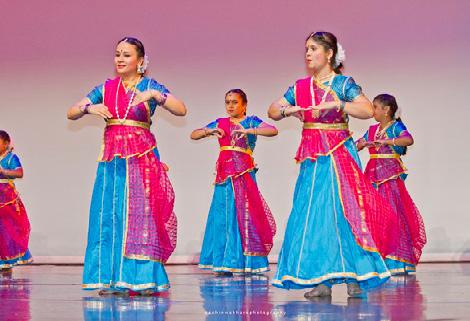
6 minute read
SAY IT AGAIN
from 2018-05 Sydney (2)
by Indian Link
Dance Moms
KALYANI WAKHARE wrote about having been ‘forced’ to take up dance classes by her young daughters.
Arun Mendhi wrote: Very nice article and lovely performance by all. Keep it up and enjoy life.

Sachin Wakhare wrote: #prouddad #proudpartner. Beautiful performance by all students of Harshala.
Sreedevi Rapulo wrote: It was an amazing performance from all of you. Your efforts in learning ended up as a successful program on stage; it was a feast for the eyes to see such young children performing.
Rajni Luthra wrote: Lovely story - and one that the little ones will thank their mum for, in years to come! Well done to all three Wakhare ladies.
CONGRATS?
On Mother’s Day, NEHA MALUDE wrote about her rst pregnancy and the search for her ‘missing’ maternal instinct.

SL Pathi wrote: I re ected for quite a while on the last line “I am a bad mum.” There is no such person as a bad mum. Every woman from the moment of conceiving wants to do her best for her offspring(s). In that process mums set the bar so high that even when they fall by a notch or two they unjusti ably assume the ‘bad mother’ tag. There may be times they fall short of the high standards they set for themselves due to factors beyond their control. And there may be times it is only their perception they haven’t done their best. It is for good reasons that God - or nature - has assigned the female species to bear and nurture their progeny. Thank heavens, the male species is relegated to the back in this regard, gender equality pleas notwithstanding.
Congratulations to my girl @meghanmarkle and Prince Harry!! I’m so happy for you Meg! You deserve the best always. Xoxo Bollywood actor Priyanka Chopra, on Meghan Markle and Prince Harry’s engagement
I’m super excited! Myna Mahila Foundation is delighted to be a part of this special occasion for Ms Meghan Markle and Prince Harry. Suhani Jalota, Founer of Myna Mahila Foundation, a charity chosen by the royal couple for donations in lieu of gifts
Not Lost In Translation
CHITRA SUDARSHAN wrote a review of Poonam Saxena’s translation of Scene 75, a Hindi-Urdu book by Rahi Masoom Raza.
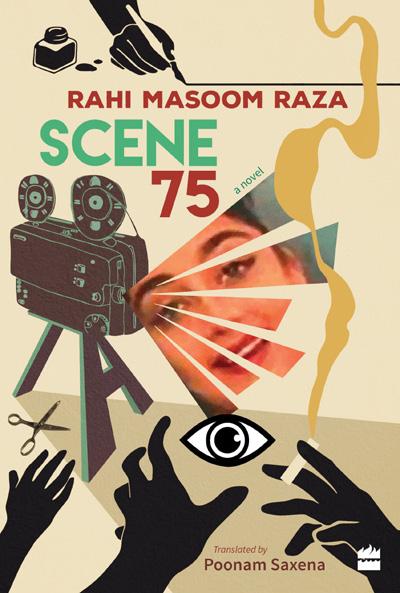
Madhubala wrote: Good job. These kind of translated novels help make Indian languages better known.
Harper Collins tweeted: Indian Link talks about Rahi Mosoom Raza’s #Scene75 and its translation by Poonam Saxena.
WHERE IN INDIA?
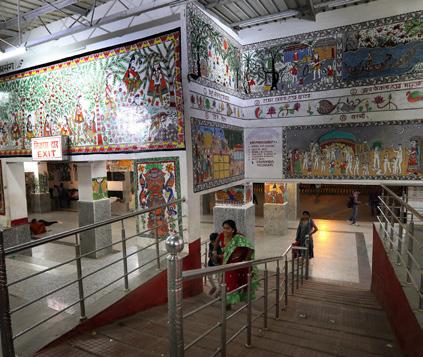
INDIAN LINK POLL


Do you think India should play a day-night Test in Adelaide against Australia?
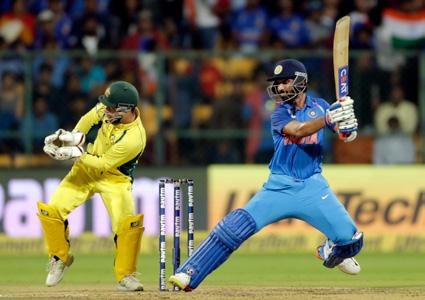
Yes, why not?: 89%
No, they shouldn’t: 11%
I wish them a very long and happy married life. They should honeymoon in India and have several children. It will be cheaper by the dozen!
Boman Kohinoor, owner of Brittania & Co (Mumbai) on the royal wedding
INDIAN LINK ON INSTAGRAM
Adelaide artist Shruti Ranade Yelleshwaram shared this picture of Indian Link’s feature on her work on her Insta account instaartist_shruti. She wrote: And it is out.. all over Australia #dreamcometrue #artislife #artistso nstagram #indianlink #indianlinkmagazine
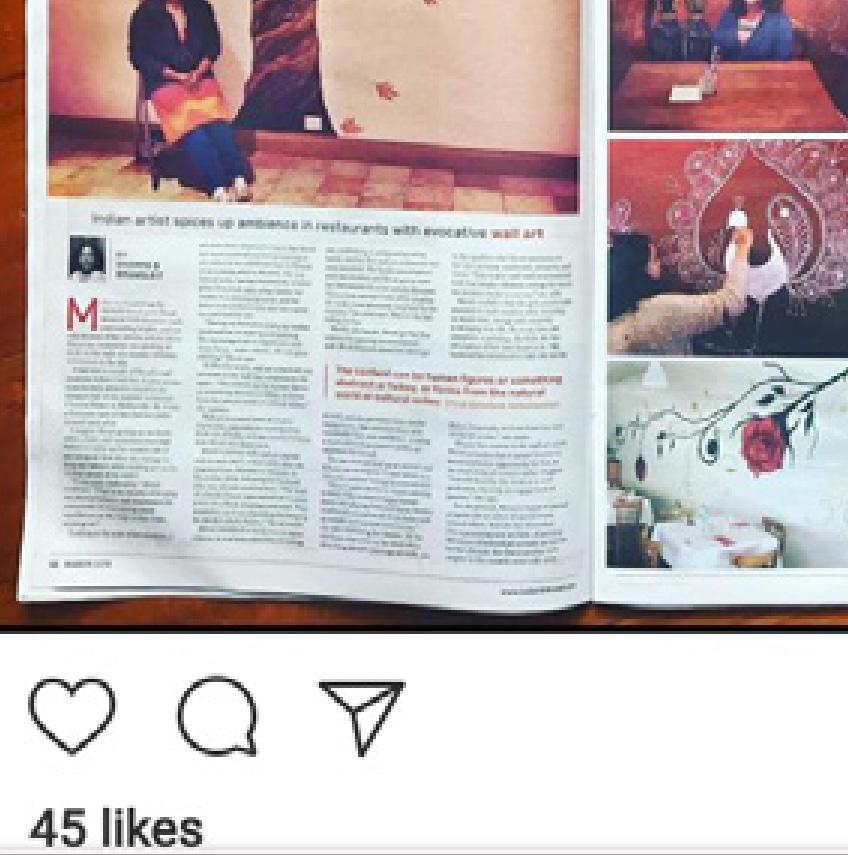

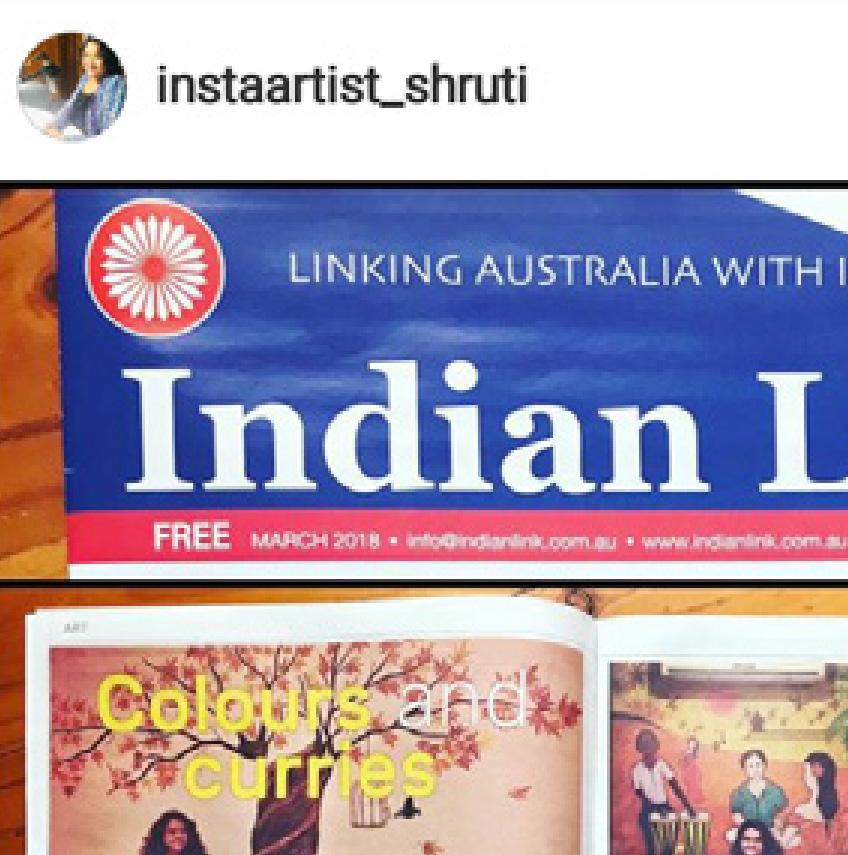
I’m really excited about attending Prince Harry and Meghan Markle’s wedding. We’ve been invited as part of the 1,200 community leaders.
Rosie Ginday, UK-based Indian-origin chef, royal wedding attendee
Excited to begin my posting in #India as Australia’s Deputy High Commissioner. Looking forward to advancing the IndiaAustralia partnership.
Rod Hilton, new Australian DHC to India


Media diversity: walking the talk
m ly tal n a out diversity doesn t m ly actual ro ress
invariably created a class system; it’s a class system that reinforces the idea that we can only accept facts and information from a group of people if they sound a certain way.
It’s perhaps Australia’s worst kept secret that its broadcast media landscape is not truly representative and reflective of the nation’s multicultural crosssection of society. You turn on the television or the radio and you are greeted by faces and voices that are inextricably interchangeable.
Morning television is exclusively a cesspool of whiteness. Private media channels seem to have little interest in changing this dynamic.
The burden of being ‘diverse’ – if I can use that word without rolling my eyes – has thus far fallen on the shoulders of public broadcasters such as the ABC and SBS. It is no surprise then, that two out of three guests on the panel (Media in Full Colour) discussing diversity in the Australian media landscape at this year’s Sydney Writers’ Festival, were from the two public broadcasters – Jeremy Fernandez (from the ABC) and Marc Fennell (from SBS).
On the question of voices and accents in the media, Fennell comes out all guns blazing. He makes the point that despite coming from different backgrounds, having different skin colour and ethnicities, all news readers sound the same, or at least are expected to sound a particular way. This style of disseminating information has
The most seductive liberal narrative of our times is that we as a society are continuously moving towards progressive ideals. It’s a narrative that is selfperpetuating because of how much it provides a dose of comfort – yes, the rise of Donald Trump and the populist backlash against embracing progressiveness it has brought seems alarming in the short-term, but throughout history, we have continued to strive in making our world a fairer, more inclusive and a more tolerant place to live.
Except that’s not the whole story.
The problem with this nostalgic and rosy outlook where social progress is the default outcome in the long term is that it works really well as a self-rationalisation tool. You don’t actually have to be doing anything to get to the eventual outcome because it’s understood to be almost preordained. And it becomes too easy to look back a generation or two – think how much more accepting and tolerant you are than that older relative of yours who still makes casually sexist and racist remarks at dinner parties – and give yourself a pat on the back for doing such a splendid job.
Because the resonance of this liberal narrative is so strong, everyone is all too happy to jump on the bandwagon. Progressive ideals are intuitively attractive and marketable. Everyone wants to be ‘diverse’. Diversity has become a buzzword that has a lot of social currency. We love talking about diversity. I might be wrong, but right this minute, there must be a panel talking about diversity somewhere in the world. The Man Booker Prize winner Marlon James – and previous guest at the Sydney Writers’ Festival – wrote an acutely illuminating piece about why he’s done talking about diversity.
“It’s not just that diversity, like tolerance is an outcome treated as a goal. It is that we too often mistake discussing diversity with doing anything constructive about it. This might be something we picked up from academia, the idea that discussing an issue is somehow on par with solving it, or at least beginning the process. A panel on diversity is like a panel on world peace. It should be seeking a time when we no longer need such panels. It should be a panel actively working towards its own irrelevance. The fact that we’re still having them not only means that we continue to fail, but the false sense of accomplishment in simply having one is deceiving us into thinking that something was tried.”
The problem is, of course, that there is no nuanced understanding of what diversity is or ought to look like in practice. Organisations appear to interpret diversity in ways that are most compatible with their existing ecosystems and hence, are least threatening to the existing status quo. Often this mindset leads to reductively equating diversity with skin colour. Fernandez is quick to deride this way of thinking, emphasising that diversity is “not an idea of a rainbow array of people standing beside each other holding hands”.
These kinds of panel discussions around diversity – whether they are about gender, cultural backgrounds and/or experiences in general – happen dime-a-dozen at many writers’ festivals across the globe.
It’s like preaching to the choir: most of the audience members would call themselves ‘liberal’ – basically the kind of people who want to attend a talk about ‘diversity’ in the first place. Even at this panel discussion, moderator Andrea Ho brought up this expectation that persists: that it is up to individuals from non-white backgrounds to ‘fix’ the diversity issue –somehow it’s always up to the people of colour to be the gatekeepers of teachable moments.
This way of framing the diversity issue is extremely reductive and has so far yielded no rewards. People of colour have been sharing their experiences and insights – much like this panel – on diversity in various contexts for a long time. But until the debate around diversity is framed as something that society as a whole needs to address on a structural and institutional level, there is little hope to make any meaningful progress.
At the end, the audience applauds wholeheartedly, as if they have just been injected with a shot of self-awareness into their system. Everyone silently acknowledges the need to be more diverse and goes home happy, feeling they have done their bit in adding their two-cents to the social progressiveness discourse.
And you wait for the next writers’ festival to do it all over again.








